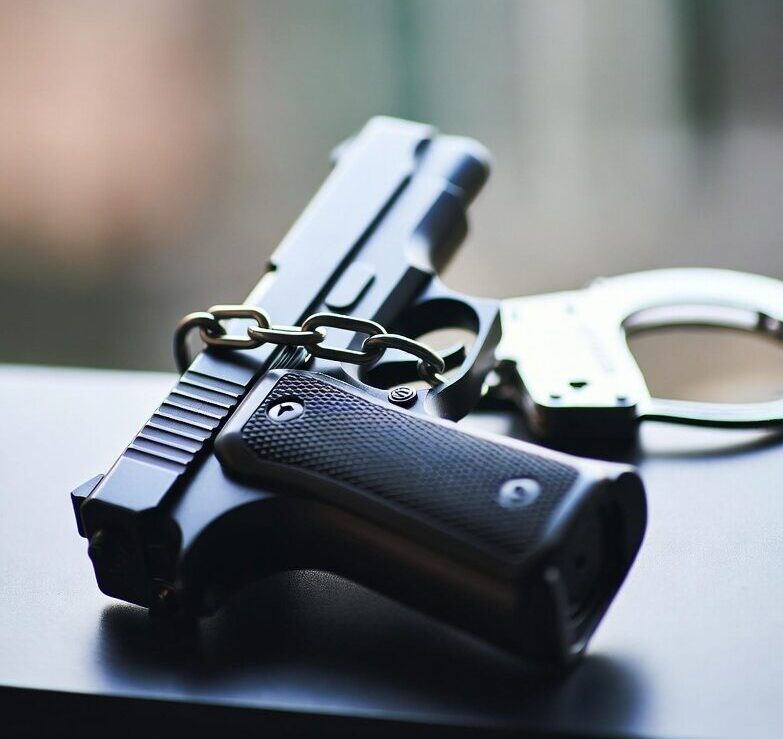Oklahoma isn’t shy about throwing the book at drug offenses. Even after some much needed reforms, drug charges in Oklahoma can still land you in jail, drain your bank account, and leave a stain on your record long after you’ve paid your dues. Below, we tackle the questions clients tend to ask us most—so you know what you’re up against and how to protect yourself.
Possession—or Possession with Intent? How the DA Decides
Simple possession means you had a controlled substance for personal use. Possession with intent to distribute is a felony that suggests you planned to sell or share. Prosecutors look at:
- Quantity: More than a “personal use” amount (often anything over a few grams) raises eyebrows.
- Packaging: Multiple baggies, vacuum-sealed bricks, or scales imply sales.
- Statements: Bragging about “moving product” on social media or during a traffic stop can seal the deal.
If the DA can show circumstantial evidence—texts, cash piles, ledgers—expect them to file possession with intent even if you never made a sale.
How Much Triggers a Trafficking Charge?
Oklahoma’s Trafficking in Illegal Drugs Act sets weight thresholds. Hit these numbers and you can be charged with drug trafficking—even if there’s zero proof you actually sold anything:
- Marijuana – 25 pounds or 1,000 plants
- Methamphetamine – 20 grams
- Cocaine – 28 grams
- Heroin – 10 grams
- Fentanyl – 1 gram (yes, just one gram)
Cross the threshold, and you’re looking at mandatory prison ranges and six-figure fines.
What Happens at Arraignment—and Do I Need a Lawyer There?
Your first court appearance is the arraignment. The judge:
- Reads the charges.
- Advises you of your rights.
- Sets bail (or keeps the bond you already posted).
- Takes your plea (usually not guilty to preserve defenses).
Yes, you absolutely want a lawyer present. An attorney can argue for lower bail, correct factual errors in the charging document, and start negotiating with the prosecutor right away.
Miss a technicality, and you’ll be paying for it the rest of the case.
Sentencing Ranges: Possession with Intent vs. Trafficking
- Possession with Intent (felony): Schedule I/II drugs (meth, heroin, fentanyl, cocaine): 2–10 years for a first offense; up to life for repeaters. Fines up to $20,000.
- Trafficking (felony):
- Marijuana: 4 years–life + fines $25,000–$100,000.
- Meth, cocaine, heroin: 4 years–life + fines $50,000–$500,000 (higher weights = bigger fines).
- Fentanyl: 4 years–life and fines up to $500,000—no slap on the wrist here.
Keep in mind that sentencing enhancements kick in if you have prior felonies, guns, or the crime occurred near a school.
How Does Oklahoma Drug Court Work—and Must I Plead Guilty?
Drug Court is a treatment-focused diversion program. Instead of prison, you attend counseling, random UAs, and frequent court reviews for roughly 18 months. Complete every requiremen, and the judge dismisses or reduces your charge.
Do you have to plead guilty? Usually, yes—“condition of probation” plea. However, the conviction is not formally entered if you graduate. Violate the program, and that plea becomes an active judgment, sending you back to square one. A lawyer can negotiate entry and craft the agreement so you keep the option of withdrawing the plea if the state breaches its end of the deal.
How Long Does a Misdemeanor Possession Stay on My Record, and When Can I Expunge It?
After State Question 780, simple possession is a misdemeanor (unless you have priors for distribution/violent felonies). A conviction:
- Stays public forever unless you expunge it.
- Expungement timeline: Five years after completing the sentence (fines paid, probation done) and if you have no subsequent felony convictions or pending charges. File a petition in the district court; if granted, private employers, landlords, and most licensing boards won’t see it.
Remember: possession with intent or trafficking convictions have stiffer (and longer) expungement waiting periods—if they’re eligible at all.
Facing Drug Charges? You Need Proven Legal Firepower
Navigating drug charges in Oklahoma on your own is like playing chess blindfolded—one wrong move and it’s checkmate.
At Overman Legal, we:
- Challenge the stop and search – Bad traffic stop? Defective warrant? We push to suppress illegally seized evidence.
- Scrutinize lab results – Chain-of-custody errors or contaminated tests can crater the state’s case.
- Negotiate smart deals – From Drug Court entry to reduced charges, we structure outcomes that protect your future.
- Map the expungement path – If conviction is unavoidable, we position you now for the fastest record-sealing later.
Don’t hand prosecutors an easy win. You need to put experienced defenders between you and the state’s heavy handedness towards drug charges. Our team knows what it takes to build your best defense and protect your future.




